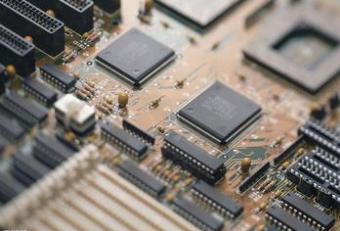 TSMC's Apple strategy has finally taken a substantial step. TSMC has recently signed contracts with some of Apple's OEMs. The supply agreement has been implemented since 2014. This not only provides TSMC with huge profit margins, but also accelerates Apple’s “going to Samsungâ€.
TSMC's Apple strategy has finally taken a substantial step. TSMC has recently signed contracts with some of Apple's OEMs. The supply agreement has been implemented since 2014. This not only provides TSMC with huge profit margins, but also accelerates Apple’s “going to Samsungâ€. However, many people in the industry believe that Apple's orders are not "honey" and TSMC will pay a high price for it. Senior semiconductor expert told the “First Financial Daily†reporter that increasing investment has been a reluctant move for TSMC to stay ahead of the process.
According to relevant media reports, TSMC will produce the next-generation 20nm process A-series chips for Apple. This chip will be used in 2014 products, and volume production will start from early next year. Taiwan Semiconductor Manufacturing Co., Ltd. will begin production of the Apple A8 processor in small batches using the 20-nm process from July this year, and will begin mass production in December.
Of course, whether TSMC will become the exclusive foundry of Apple's A8 and A9 series processors cannot be confirmed at present.
Credit Suisse analyst Randy Abrams predicts that Apple's chip orders will help TSMC's total revenue increase by 8% in 2014 and 15% in 2015.
Although relying on Apple's orders will lead to a full-scale upgrade, direct competition from Samsung will also be reduced, but TSMC must also invest heavily in it. Earlier this year, TSMC raised its capital expenditure in 2013 from US$9 billion to US$9.5 billion to US$10 billion; in 2012, its capital expenditure was between US$8 billion and US$8.5 billion.
TSMC’s takeover of Apple’s orders is also in line with Apple’s strategy of accelerating its efforts to Samsung. For TSMC, obtaining orders from Apple proved that it has occupied a key highland under the rise of this wave of smart phones.
TSMC Chairman Zhang Zhongmou previously stated that the overall semiconductor industry growth rate is expected to be about 3% in 2013, and TSMC’s revenue growth rate may be 15%~20% better than the overall environment. In 2013, revenue exceeded NT$600 billion.
If it is true that Zhang Zhongmou’s expectations are met, the market value of TSMC will also set a new record and will surpass Intel’s. The previous market value of Intel fell below 100 billion US dollars.
Laoji told reporters that Intel’s technological advantage in wafer manufacturing is still very strong. Intel has even begun research and development of 5-nanometer technology. The attributes of pure foundry companies (excluding sales) determine that TSMC is difficult to fully catch up with Intel. And Samsung. "Thus, in order to maintain its lead in the process, TSMC can only continue to increase investment, otherwise, it is easy to surpass the close neighbors of the grid and Intel."
He also said that thanks to smart phones and tablet computers, whether it is TSMC, or UMC, SMIC and Other chip makers, this year's orders are very full, this market is expected to continue for several years.
A battery pack built together with a Battery Management System with an external communication data bus is a smart battery pack. A smart battery pack must be charged by a Smart Battery Charger.
Main functions of BMS: capacity forecast, over current, over voltage, over charge, over discharge, over-temperature protection, single voltage balance, abnormal alarm, CAN-BUS communication, programmable parameters.
Lifepo4 Battery Management System,Lifepo4 Bms,12V Lifepo4 Bms,Bms For Lifepo4 Battery
Xinxiang Taihang Jiaxin Electric Tech Co., Ltd , https://www.agvchargers.com
